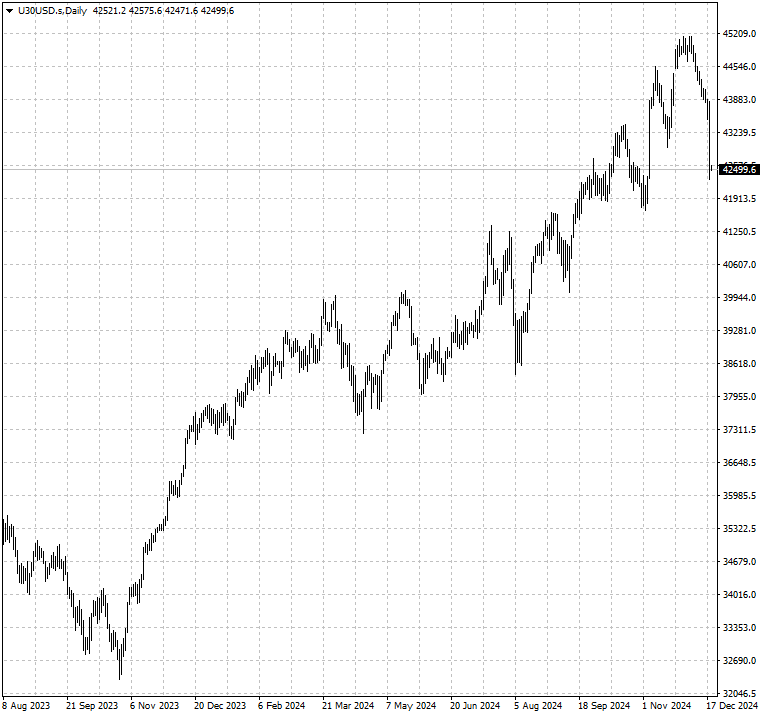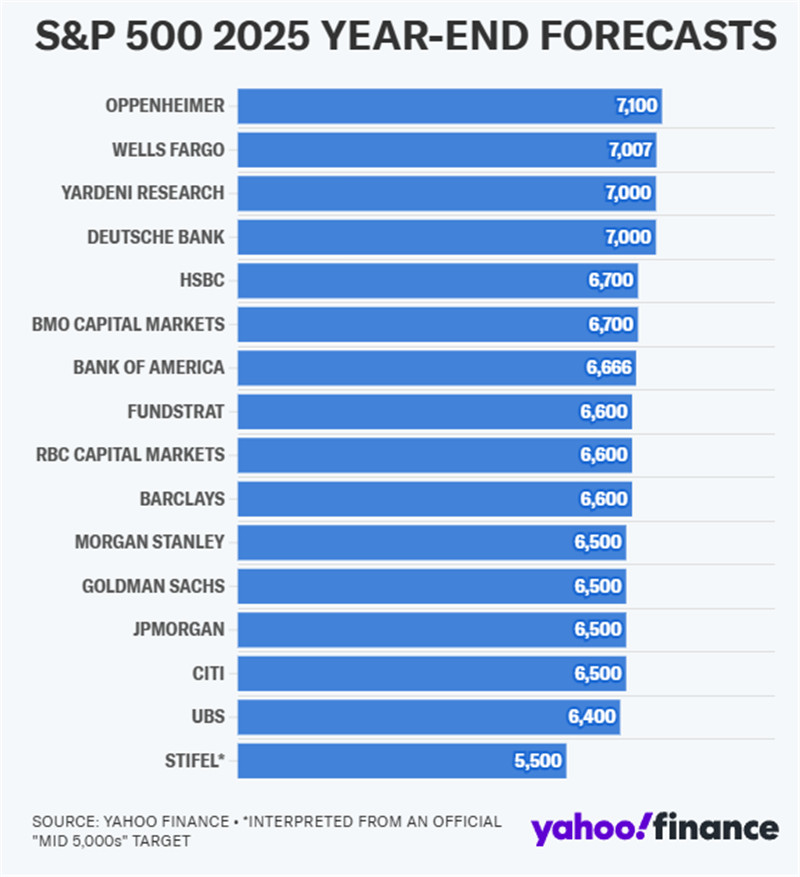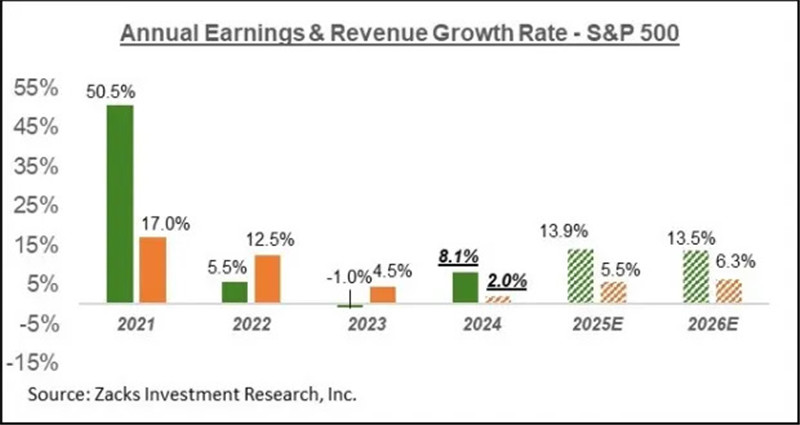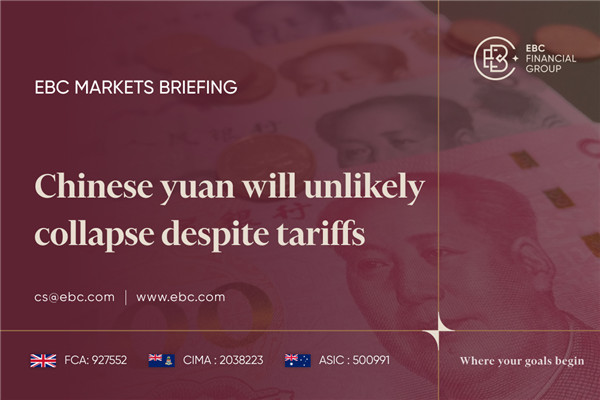US stocks plummeted on Wednesday as the Fed signalled slower pace of rate
cuts in the upcoming year. The Dow it was its tenth consecutive daily loss,
marking its longest losing streak since 1974.

But the party may not be over. The mainstream view is that US stock market
will end 2025 higher than its current levels, according to strategists who have
listed 2025 year-end calls for the S&P 500.
Among them Oppenheimer chief investment strategist John Stoltzfus even
initiated his target for the benchmark index above 7,100, citing the resilience
in economic growth and current monetary policy.
He added that the broadening of the equity rally over the past year suggests
that "the current bull market likely has legs strong enough to climb the
proverbial 'wall of worry' into and through 2025."

RBC Capital Markets head of US equity strategy Lori Calvasina pointed out in
her 2025 outlook why economic growth meeting or exceeding positive expectations
could be crucial to the stock market rally.
Dating back to 1947, when GDP grew by 1.1% - 2%, stocks were higher just 40%
in those years, with an average decline of 3.4%. When it was 2.1% - 3%, stocks
were higher 70% of the time, rising nearly 11% on average.
Stifel chief investment strategist Barry Bannister – the only bearish one –
warned that sticky inflation could prompt the Fed to hold interest rates for
longer against the background of cooling economy.
Powell call
Interestingly, a Schwab's report noted, multiples can continue to move higher
and there is not a strong historical relationship between valuation and forward
performance."
It is an encouraging observation for FOMO investors to buy at a time of
market complacence.
The forward P/E on the S&P 500 is around 22 which has preceded positive
annual returns numerous times.
During periods where earnings growth is above average and monetary policy is
accommodative, history shows P/E ratios rarely fall. Corporate America is
heightening that case.
The expectation is for double-digit earnings growth in each of the next two
years, with the number of sectors enjoying strong growth notably expanding from
the narrow base.

However, a loose monetary policy is not a given now. Officials' projections
for rates in 2025 pointed to fewer cuts than previously forecast on the ground
of lingering price pressures.
They also raised that estimate for the neutral rate again, with a majority
now putting it at 3%, up from the previous 2.5%. Higher interest rates usually
bode ill for growth stocks.
Powell said that officials had begun to include in their forecasts
assumptions about Trump's planned policies. There is great uncertainty around
how much inflation will be affected by fiscal stimulus and protectionism.
Tesla first
Tesla shares closed at an all-time high on Monday as the EV maker continues
its relentless run higher since Trump's victory. They are up more than roughly
80% this year.
Apart from Musk's intimacy with the upcoming president, Tesla's China unit
said it sold 73,000 EVs on the mainland during in November, its highest monthly
sales thus far in the year.
A Reuters report said Trump was considering to remove a NHTSA order requiring
automakers to report crashes involving self-driving or autonomous driving
systems – a boon for the company.
Earlier this month, analysts at Deutsche Bank, BofA, and Morgan Stanley all
upped their price targets for it. Wedbush Securities predicted Tesla could hit
$2 trillion in market cap by the end of 2025.
Trump's plan to scrap the EV tax credit is misread by some investors as a
blow to Tesla, but it actually is more likely to push out less cost-effective
competitors out of the market.
Challenges come from China where local EV makers have launched a range of
fully electric SUVs that are intended to take on the Model Y. They are also
intensifying efforts in their own autonomous driving technology.
A blind spot is that Beijing could put Musk under pressures to lobby for
lower US tariffs. If a decoupling between the two countries still accelerates,
Tesla will have to address concerns from both sides.
Disclaimer: This material is for general information purposes only and is not
intended as (and should not be considered to be) financial, investment or other
advice on which reliance should be placed. No opinion given in the material
constitutes a recommendation by EBC or the author that any particular
investment, security, transaction or investment strategy is suitable for any
specific person.









